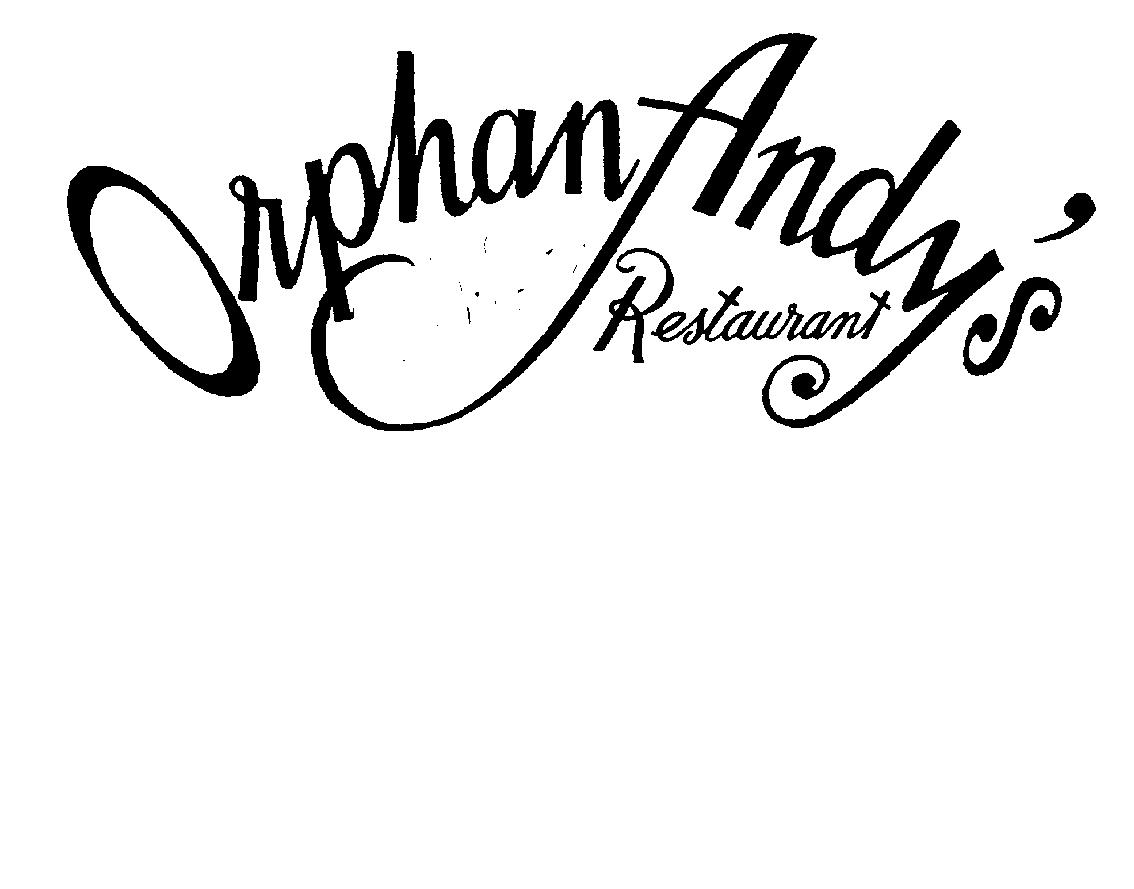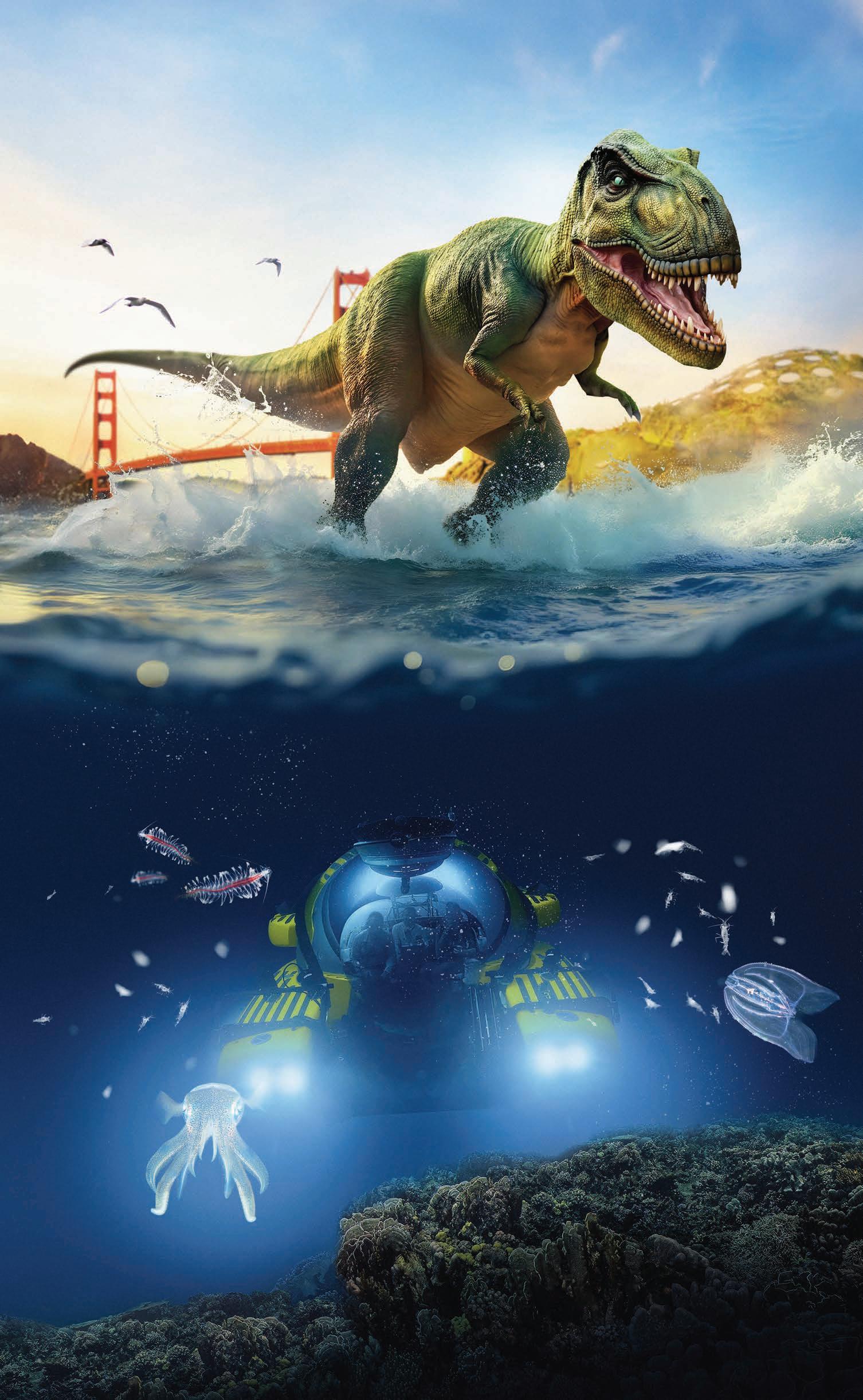

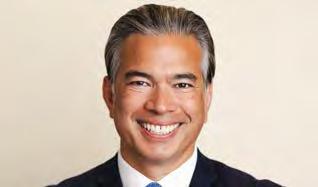




by John Ferrannini
California last year saw reported antiLGBTQ+ bias events rise 13.9% over 2023 numbers. While the increase was significantly less than the dramatic spike in such incidents that was reported last year, state prosecutors cautioned a lack of data likely accounts for such a steep year-to-year drop off.
The state recorded an eye-popping 86.4% increase of anti-LGBTQ+ bias events from 2022 to 2023, as the Bay Area Reporter reported around this time last year, when the 2023 hate crimes report was released. On June 25, in the middle of this year’s Pride Week, California Attorney General Rob Bonta released the “Hate Crime in California 2024” report.
It reported that hate crime events in general rose 2.7%, from 1,970 in 2023 to 2,023 in 2024. The report does caution “comparing 2024 crime data to prior years,” because “not all agencies were able to submit a full year of data for 2024.”
The report goes on to state that agencies in seven counties – including Los Angeles and San Diego counties, but none of which were in the Bay Area – did not report full data, “due to a variety of reasons including but not limited to issues with their Record Management Systems (RMS), unresolved reporting errors, staffing issues, being newly established reporting agencies, or failing to submit data.”
The report defines a hate crime event as one that “contains the occurrence of one or more criminal offenses, committed against one or more victims, by one or more suspects or perpetrators. Victims can have more than one offense committed against them.”
In San Francisco, the city reported 52 hate crime events impacting 57 victims and involving 51 suspects. The regional BART system and SF State both reported one event for San Francisco County each involving one victim and two suspects for the transit incident and three for the campus hate crime.
“There is absolutely no place for hate in California,” Bonta stated. “Transparent and accessible data is a critical part of understanding where we are and how we can end hate crimes in our communities.”
See page 6 >>



by John Ferrannini
San Francisco may have one of the country’s highest concentrations of queer people, but the LGBTQ communities north and south of the city also have community centers to meet people’s needs. One of those, the San Mateo County Pride Center, is reckoning with limitations as its fiscal sponsor seeks a merger to survive.
Southbound from San Francisco on Highway 101, the center at 1021 South El Camino Real in the city of San Mateo provides mental health and senior services, as well as peer groups for LGBTQ+ parents and gay men, plus a book club. The center just passed its eighth anniversary, having opened June 1, 2017.
The peer groups are virtual. The center reopened its doors post-COVID in March 2023, as the B.A.R. reported at the time.
The center’s executive director Francisco “Frankie” Sapp, a disabled, biracial, queer, transgender man, stated to the B.A.R. that the center has a budget of $1.5 million and that it serves 12,000 people annually.
Asked if it’s facing financial challenges from either canceled government contracts or donations drying up, Sapp stated that, “Interestingly, the Pride Center’s financial sustainability has experienced little direct impact this year. Most financial
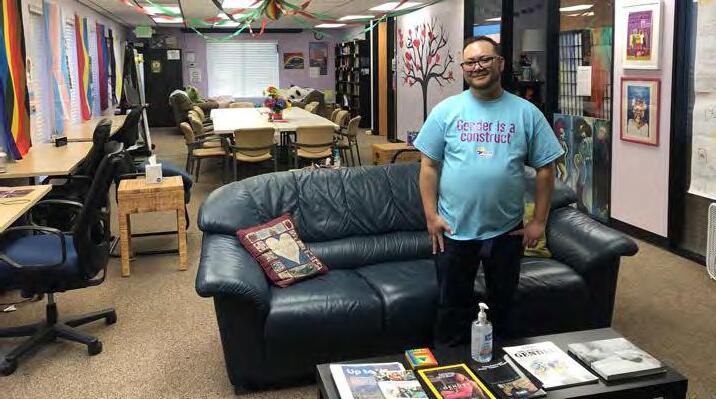

changes to our program, as a fiscally sponsored one, have been secondary.
“We are doing our best to brace for future impacts as we just began the process of potentially becoming a 501(c)3,” he added, referring to the designation for stand-alone nonprofit organizations.






But that doesn’t mean there aren’t challenges on



by John Ferrannini
Sthe horizon. Sapp continued, “Our total numbers served continues to grow each year despite our static number of team members, and various other resources. This is why working with partners and being supported by a parent agency, like StarVista, has been essential to helping us operate.”


an Francisco Mayor Daniel Lurie set a 60-day timetable for good faith negotiations between the two businesses flanking the Castro Theatre and the building’s owners and managers, according to one of the business owners and the neighborhood’s supervisor. The news comes as electrical work on the renovation project at the theater begins on Castro Street, and the venue begins booking events for 2026.
Ken Khoury, the proprietor of the Castro Coffee Co. at 427 Castro Street, stated to the Bay Area Reporter on July 8 that Lurie “suggested a 60-day negotiating period in good faith.” Ken’s brother, Riyad Khoury, owns the Castro Nail Salon at 431 Castro Street, on the other side of the theater. The historic movie palace is owned by the Nasser Family and, since 2022, is managed by Another Planet Entertainment.
As the B.A.R. first reported, the Khoury brothers, both straight allies, said they had till June 30 to vacate their spaces because their leases were not renewed by the Nassers. As of July 1, APE began subleasing the three-unit building that includes the theater and the two storefronts, the brothers say.
Yet, as of that date, both businesses were still open, and neither had been served with an eviction notice, Ken Khoury told the B.A.R. He added he’d already paid his rent for July, and that Lurie and gay

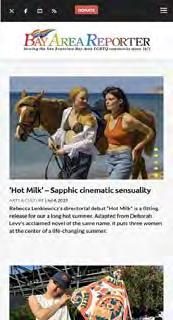
See page 6 >>

Ken Khoury fills an order of coffee beans at his Castro Coffee Co., which remains open despite ongoing negotiations over his lease.
Board of Supervisors President Rafael Mandelman were involved in the negotiations. Reached for comment, a Lurie spokesperson referred the B.A.R. to Michelle Lynch Reynolds, programs and communication manager for the Office of Small Business. Reynolds didn’t return a request for comment.
Mandelman stated the request came directly from the mayor, who marked six months in office July 8.
“The mayor asked for it, and the parties agreed, and I am grateful for his engagement,” Mandelman stated.
The Los Angeles Blade covers Los Angeles and California news, politics, opinion, arts and entertainment and features national and international coverage from the Blade’s award-winning reporting team. Be part of this exciting publication serving LGBT Los Angeles from the team behind the Washington Blade, the nation’s first LGBT newspaper. From the freeway to the Beltway we’ve got you covered.
Despite a report to the contrary in the San Francisco Chronicle, neither the coffee shop nor the nail salon had been served with an eviction notice as of July 8, according to both Ken Khoury and APE spokesperson David Perry, a gay man. The daily paper had reported July 7 that outside programmers, such as the LGBTQ international film festival Frameline held each June, have been contacted by APE about returning to the Castro Theatre next year.
The Nassers didn’t return a request for comment.
APE has insisted it will not be a landlord to the Khourys’ businesses. The events and concert promoter also initially disavowed involvement in the lease situation, saying that it had no plans for the space and the matter was between the brothers and the Nassers. Later, however, the company changed tact, telling the Chronicle that it wants to use the spaces for an expanded box office. The theater is slated to reopen by March.
The B.A.R. also first reported that, according to city officials, because it is a legacy business, the city will have to approve any expansion of the theater into the nail salon’s space. The coffee company was not eligible to be a legacy business.
See page 7 >>

by John Ferrannini
San Francisco’s LGBTQ community is speaking out after a beloved drag performer was detained by U.S. Immigration and Customs Enforcement at a federal courthouse downtown.
Hilary Rivers was detained June 26, at a scheduled immigration hearing downtown, 48 Hills reported. (The outlet reported that Rivers uses he/ him pronouns, but it and other outlets are not reporting Rivers’ non-drag name.)
ICE has been arresting people both at its field office at 630 Sansome Street and at the San Francisco Immigration Court at 100 Montgomery Street. President Donald Trump’s budget act, which he signed Friday, triples ICE’S budget, and earmarks $140 billion for immigration enforcement. ICE agents pointed rifles and used pepper spray on about 20 protesters trying to block their entry to 100 Montgomery on June 8, Mission Local reported.

Rivers, who was born in El Salvador but raised in Guatemala, was seeking asylum in the United States, alleging persecution in his home country. He was admitted through the Customs and Border Patrol’s One program, a mobile app that allowed asylum seekers to schedule appointments. After the program was canceled by the second Trump administration, all those who entered the country via the app had their parole status revoked. In an increasingly common tactic among immigration enforcers, Rivers was detained while leaving court




after a hearing in which a government motion to dismiss his asylum case was denied. He had just participated in the Miss & Mr. Safe Latino 2025 Pageant the previous day.
A joint Instagram post from the accounts of Rivers and Galería de la Raza, according to a translation from Spanish, states that Rivers “hopes to be an example of tolerance in her San Francisco community. Although she grew up with discrimination, her message centers on queer joy where everyone deserves to be happy as they are. She debuted on Guatemala stages at age 17, but Hilary Rivers’ real origin was at a contest where she appeared with a cart of pupusas, giving her the nickname ‘la pupusera.’”
The post adds Rivers debuted in San Jose and “has been doing drag intermittently for 10 years.”
Galería de la Raza held a letterwriting event June 30 so that supporters could write letters to Rivers, who is being held at the Golden State Annex, an ICE facility in Kern County, California, Mission Local reported.
Galería de la Raza Executive Director Ani Rivera didn’t return multiple requests for comment for this report; but among those present was District 9 Supervisor Jackie Fielder. A queer woman who represents the Mission neighborhood, Fielder told the B.A.R. that, “The community came together in this really difficult moment to support Hilary to show our support.”
“This case, and so many ICE enforcement actions and detentions, are deeply troubling,” Fielder continued. “ICE is repeatedly denying our community, our friends, our families rights. We are fighting for Hilary’s release, for the right to seek asylum, and for the protection of due process. And to meet this unprecedented need, I am pressing the mayor’s office to increase the city’s commitment to funding local immigration legal services.”
San Francisco Mayor Daniel Lurie’s proposed balanced budget cut funding for the Office of Civic En-
gagement and Immigrant Affairs, a move that amid the Trump crackdown has been criticized by Fielder and activists. In announcing his budget plan, Lurie touted funding in both the City Administrator’s office and the Mayor’s Office of Housing and Community Development for immigrant legal services and the LGBT Asylum Project. (The Board of Supervisors is expected to adopt the city’s budget July 15.)
Xochitl, an immigrant activist and drag artist, told the B.A.R., “I feel scared and furious.”
“Hilary did nothing wrong; she presented herself to her hearing, abiding by law. How are we supposed to trust a system that pulls out the rug right beneath us?” asked Xochitl. “It makes no sense. I saw her perform the night before she was detained and it was such a moving number, I saw myself in her, I saw her struggle as more than a queer person or an immigrant but as a human wanting respect.”
Xochitl explained the challenges that many, struggling in America’s broken immigration system, find themselves in.
“We do everything right, we stay out of trouble, we work long hours even multiple jobs, we strive to be the perfect immigrants but time and time again that takes us nowhere,” Xochitl stated. “Being undocumented is hard. No matter what we do we can never win. We do so much for this country and I love this country, I’ve been living here since I was 6. We just want to play by the rules and be left alone. … The San Francisco drag community stands united behind her.”
Honey Mahogany, a Black, queer trans person who is head of the San Francisco Office of Transgender Initiatives, promoted the letter-writing event.
“I am deeply concerned for our dear community member Hilary and everyone else who is being targeted and swept up in these raids.” Mahogany told the B.A.R.
“People have the right to due process,” Mahogany continued. “When they are here, in this case legally, and working toward naturalization, we shouldn’t be treating them like criminals.”
Rivers isn’t the first Latin American LGBTQ asylum seeker whose case has become a flashpoint in Trump’s approach to immigrants. Andry Jose Hernández Romero, a Venezuelan gay makeup artist, was sent to an El Salvador mega prison this spring. Calls to bring attention to his case by naming him an honorary grand marshal of the San Francisco Pride parade were rebuffed, and his asylum case was dismissed in his absence.
Attorneys for Kilmar Abrego Garcia, who was returned to the U.S. from the megaprison after a U.S. Supreme Court order, described in a court filing violations of human rights there. A court filing last week recounted “severe beatings, severe sleep deprivation, inadequate nutrition, and psychological torture.” Abrego Garcia contends he was told by a prison official, “Whoever enters here doesn’t leave,” and that his head was shaved before he was struck with wooden batons as he was marched to his cell, where he was forced to kneel overnight.
With Rivers’ detention coming just as San Francisco Pride festivities were getting underway, the San Francisco Lesbian Gay Bisexual Transgender Pride Celebration Committee had a statement of its own.
“San Francisco Pride vehemently rejects the continued attacks on immigrant communities by the federal administration, SCOTUS [Supreme Court] rulings, and the splintering of our communities by ICE on the basis of violations to due process and our city’s sanctuary policy,” the committee stated in a news release. “San Francisco is the vibrant city we know of today because of the contributions of immigrants – especially queer immigrants.” t
by John Ferrannini
The San Francisco Police Department’s Mission Station, which oversees much of the city’s LGBTQ Castro neighborhood, will have a new captain soon. Liza Johansen has departed in the role after less than a year in the position.
Lieutenant Manuel Bonilla is now acting captain of the station, police spokesperson Robert Rueca stated to the Bay Area Reporter on July 1. Rueca did not answer questions about when the change became effective, the timetable for picking a new permanent captain, why Johansen left and whether she is still with the force.
“The SFPD will continue to work with the community to make sure the public is safe in the Mission Police District and other districts,” Rueca stated in an email.
Asked for a statement and if he knew why Johansen left or the timetable for her replacement, gay Board of Supervisors President Rafael Mandelman, who as District 8 supervisor represents the Castro neighborhood on the board, stated late July 1 that, “I have no information but I wish her well. She was great, and we very much enjoyed working with her.”
Andrea Aiello, a lesbian who is executive director of the Castro Community Benefit District, stated to the B.A.R. that, “We’re sad to see Johansen leave. The Castro CBD looks forward to working with acting Captain Bonilla.”
Mission Local had first reported about Johansen’s departure. She became captain at Mission Station last

August, as the B.A.R. reported shortly after she had started in the position.
A San Francisco native and a veteran of Mission Station, she told the B.A.R. she was excited to be back walking the beat. She had been a captain at San Francisco International Airport, as well as a
Frederick Luther Becker Jr. October 31, 1954 – June 16, 2025

night captain, which gave her responsibility for the whole city at night, according to then-police chief William Scott, who departed San Francisco to take a new gig in Los Angeles weeks ago. Paul Yep, previously a close advisor to Mayor Daniel Lurie, is serving as interim chief.
Johansen was the station’s fifth captain in four years and the second woman to oversee it. She told the B.A.R. last year that among her priorities were street sex trade (particularly in the Mission district proper, on Capp Street), dirt bikes causing havoc, and burglaries.
It was during Johansen’s tenure that it was decided most of the Castro would remain within the Mission Station boundaries. The idea of moving it within the Park Station’s boundaries –the precinct of which is located at 1899 Waller Street in Golden Gate Park –had been floated, but that was ultimately decided against. One reason cited was because Mission Station’s officers already had established, longstanding relationships and protocols in the neighborhood, as the B.A.R. reported late last year. t
Frederick Luther Becker Jr. passed away on June 16, 2025 at the age of 70 in Palm Springs, California. Known as Rick, his generosity and kind heart touched many lives. He will live forever in our hearts. In lieu of funeral services or flowers, donations can be made in his honor to the Alzheimer’s Association Coachella Valley. http:// www.cvalzheimers.org.
by Matthew S. Bajko
For its second year of releasing a special line of Pride merchandise, the professional women’s soccer team Bay FC didn’t want to do it in-house, as it had in 2024. It wanted to instead partner with a local artist in the Bay Area.
As it happened, artist Orlie Kapitulnik was not only a fan of the team but also a season ticketholder. She also had reached out to the team’s art director, Serena Marini, in the fall to express her interest in working with it in some capacity.
“It was sort of fate,” recalled Marini. “I had just created a list of artists I wanted Bay FC to look into working with.”
On it was Kapitulnik, as Marini acknowledged to the Bay Area Reporter that they were already a “fanboy” of hers.
“Once she reached out, I was like, ‘Oh, yeah, we are going to definitely make something happen.’ When we started looking into making the Pride collection this year, her name was top of mind,” said Marini, who is queer and nonbinary. “Since then, we met a couple times at the matches and worked on the design.”
Kapitulnik, 37, who identifies as both queer and lesbian, drew inspiration from the sports merchandise she grew up with in the 1990s and loved. That era was known for “super graphic work,” she noted during an interview with the B.A.R.
“My sort of thought on it was we all celebrate Pride differently. We all wear our Pride differently,” said Kapitulnik, whose fiancée, Dominique Oneil, is director of programming at the Jewish Film Institute. “This line sort of is a homage to the gay rainbow while still keeping a cool, limited color palette.”
For it, Kapitulnik chose more muted orange and yellow hues and a dark green. Her design features

seagulls, the Bay Bridge, a rainbow over a soccer ball and a portion of a person’s leg adorned in an athletic sock and soccer cleat.
“I chose to focus on the rainbow graphic and de-emphasize traditional colors because we all wear our Pride differently, and this merch should be a reminder that no matter how we celebrate, we must continue to raise our voices to fight for equality, the right to live authentically and love freely, and for the protection of our trans friends, family, and athletes,” she explained in a June 6 Instagram post with a photo of people wearing the merch at a soccer game. While more subtle in nature, it nonetheless still reads as a Pride-inspired design, said Marini.
“We are used to seeing the standard rainbow with all the colors in it and that is a beautiful thing. Orlie did something we had talked about, using as inspiration nineties sports graphics that share a limited color palette but are just as playful and poppy in design,” said Marini, 32, who grew up in Menlo Park and now lives in San Francisco.
Marini, who has worked for Bay
FC since the summer of 2023 and also does photography for it, told the B.A.R. that they give artists a wide berth when it comes to their collaborations. They have to follow a few rules when using the team’s official logo, otherwise they are largely free to design whatever they want, noted Marini.
“It’s just important to make sure that the merch we are producing and the art we are producing is something that comes from the community and comes from someone that identifies with that group and creates art that can express how they feel about their experiences and their relationship with Pride,” explained Marini.
Murals adorn new SF oceanside park
The commission from Bay FC is the second one this year helping to boost Kapitulnik’s public profile. She also was asked to create two murals at San Francisco’s new public park fronting Ocean Beach called Sunset Dunes.
She painted a sea-themed mural on the backside of a bathroom building located at the Taraval Street entrance into the park. Nearby on the former
roadway she painted another mural featuring various marine creatures.
“For my mural work, I am always sort of inspired by the environment around us, the animals, and how the buildings and the natural environment intersect. But in, like, a charming, sweet way,” said Kapitulnik. “I think whimsy is definitely ingrained in how I go about creating my images.”
Her aquatic-inspired murals are among a number of art installations visitors to the park will find. Sunset Dunes officially opened to the public in April following voters’ approval last November of Proposition K, the ballot measure that closed the Great Highway that spans Ocean Beach and turned its traffic lanes into a recreational promenade.
Its passage was controversial, with an overwhelming majority of nearby residents voting against Prop K. It also spawned the recall effort against gay District 4 Supervisor Joel Engardio, with Sunset District voters set to decide his political fate on September 16.
The animosity churned up by the closure of the roadway, for decades a convenient route for commuters in the city’s westernmost neighborhoods, has manifested into vandalism of several of the art installations at the park. One tagged with graffiti in the spring was a mural created by artist Emily Fromm just as they were close to finishing it.
As the B.A.R. noted in a profile of Fromm, who is nonbinary, in its June 26 Pride issue, a call for public help to repair it resulted in more than 100 people showing up over three days to assist them in completing the work on time. Although Kapitulnik didn’t have to deal with her murals being destroyed, someone did leave “very aggressive tire tread and skid marks” on the one painted on the roadway, which she had to clean up. She was subjected to the same
verbal harassment from passersby upset at the street closure as Fromm experienced. One woman told her she was creating “visual pollution” that “nobody asked for,” and told her to “go back where you came from.” Kapitulnik grew up in Palo Alto and now lives in San Francisco’s NOPA neighborhood north of Golden Gate Park’s Panhandle section.
“The murals Emily and I did, unfortunately, we got lumped into a neighborhood war with the local rep there,” said Kapitulnik, who works part time at Case for Making, a water color and art shop in the Outer Sunset. “Literally after the highway got closed and the vandalism happened, and it became clear to people in the neighborhood there was so much animosity being projected onto the artists making this work, I got nothing but positive interactions afterward.”
Soccer merch still for sale
As of July 2, unisex hoodies ($80) and tees ($40) featuring Kapitulnik’s design were available via the Bay FC’s online store at https://tinyurl. com/4txrykak. So were long sleeve shirts and tank tops ($40).
According to the team, it would donate 10% of the net profits from those purchased during Pride Month in June to the San Francisco Spikes soccer team. The LGBTQ recreational team had thanked Bay FC in a comment posted to its Instagram account last month.
“It means the world to see a pro club uplifting queer artists, supporting LGBTQ+ athletes, and showing love to inclusive soccer communities like ours,” stated the team.
Marini told the B.A.R. the 2025 Pride collection items should also be available at the stadium store during the team’s home games this month.
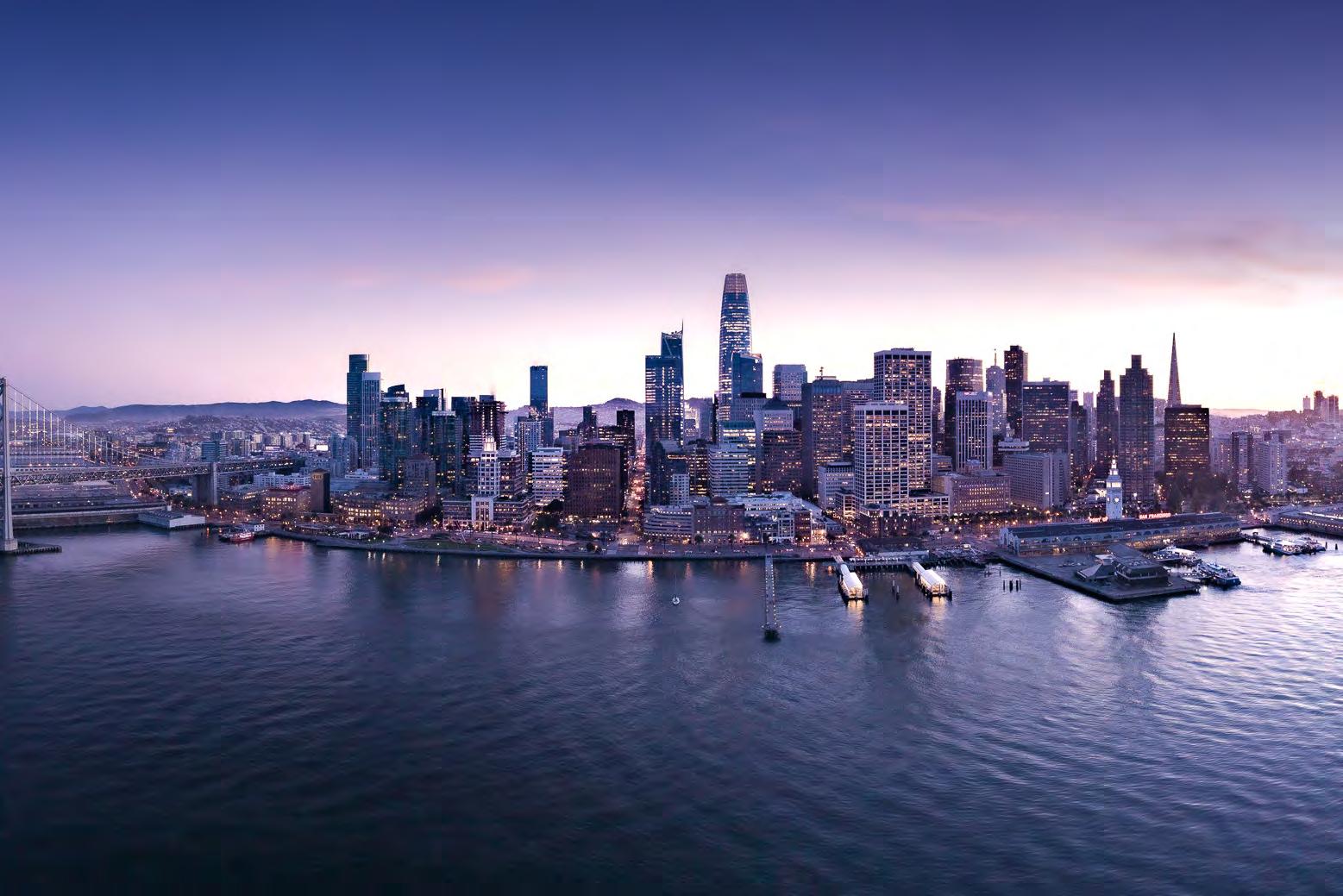







Volume 55, Number 28 July 10-16, 2025 www.ebar.com
PUBLISHER
Michael M. Yamashita
Thomas E. Horn, Publisher Emeritus (2013)
Publisher (2003 – 2013)
Bob Ross, Founder (1971 – 2003)
NEWS EDITOR
Cynthia Laird
ARTS & NIGHTLIFE EDITOR
Jim Provenzano
ASSISTANT EDITORS
Matthew S. Bajko • John Ferrannini
CONTRIBUTING WRITERS
Christopher J. Beale • Robert Brokl
Brian Bromberger • Philip Campbell
Heather Cassell • Michael Flanagan
Jim Gladstone • Liz Highleyman
Brandon Judell • Lisa Keen
Philip Mayard • Laura Moreno
David-Elijah Nahmod • Mark William Norby
JL Odom • Paul Parish • Tim Pfaff
Jim Piechota • Adam Sandel
Jason Serinus • Gregg Shapiro
Gwendolyn Smith • Charlie Wagner
Ed Walsh • Cornelius Washington • Sura Wood
ART DIRECTION
Max Leger
PRODUCTION/DESIGN
Ernesto Sopprani
PHOTOGRAPHERS
Jane Philomen Cleland
Rick Gerharter • Gooch
Jose A. Guzman-Colon • Rudy K. Lawidjaja
Georg Lester • Rich Stadtmiller
Christopher Robledo • Fred Rowe
Shot in the City
• Steven Underhill • Bill Wilson
ILLUSTRATORS & CARTOONISTS
Christine Smith
VICE PRESIDENT OF ADVERTISING
Scott Wazlowski – 415.829.8937
NATIONAL ADVERTISING REPRESENTATIVE
Rivendell Media – 212.242.6863
LEGAL COUNSEL
Paul H. Melbostad, Esq.


Bay area reporter
44 Gough Street, Suite 302 San Francisco, CA 94103
415.861.5019 • www.ebar.com
A division of BAR Media, Inc. © 2025
President: Michael M. Yamashita
Director: Scott Wazlowski
News Editor • news@ebar.com
Arts Editor • arts@ebar.com
Out & About listings • jim@ebar.com
Advertising • scott@ebar.com
Letters • letters@ebar.com
Published weekly. Bay Area Reporter reserves the right to edit or reject any advertisement which the publisher believes is in poor taste or which advertises illegal items which might result in legal action against Bay Area Reporter. Ads will not be rejected solely on the basis of politics, philosophy, religion, race, age, or sexual orientation.
Advertising rates available upon request.
Our list of subscribers and advertisers is confidential and is not sold. The sexual orientation of advertisers, photographers, and writers published herein is neither inferred nor implied. We are not responsible for unsolicited manuscripts or artwork.
When we caught up with queer Congressmember Emily Randall (D-Washington) at the Seattle Pride parade June 29, she was monitoring the U.S. Senate’s deliberations on President Donald Trump’s One Big Beautiful Bill. Randall, Congress’ first out Latina member, noted she had voted against it in the House, and was prepared to do so again once it passed the Senate, which it did July 1.

“A big, ugly brick is what it is,” Randall told us in an interview after she finished riding in the Pride parade as a grand marshal. While she added that some of the “bad stuff” that was in the House version had been removed by senators in order to pass it in the upper chamber, there were still plenty of awful things in the bill, including deep cuts to Medicaid and food stamps. Randall did return to Washington, D.C. the day after Pride, and again voted with all of her Democratic House colleagues (and two Republicans) against the bill July 3. Unfortunately, enough GOP congressmembers prevailed to see the bill adopted on a final vote; Trump signed it into law July 4, just as he had planned.
Now that Trump’s bill is law, we can indeed expect LGBTQs to suffer harm due to the cuts, even as the wealthy see their tax cuts made permanent as the federal deficit explodes to more than $3.4 trillion over the next 10 years. The Williams Institute, an LGBTQ think tank housed at the UCLA School of Law, issued a release after the House’s final vote. It estimates that about 2 million LGBTQ adults rely on Medicaid and the Supplemental Nutrition Assistance Program, SNAP, informally known as food stamps.
working or in school for 80 hours per month to keep their health insurance. In perhaps one bit of good news, the institute stated that an earlier provision banning Medicaid from covering gender-affirming care was removed from the bill. But it stated that “LGBT adults are twice as likely as non-LGBT adults to have Medicaid as their primary source of health insurance. (13% versus 7%.)”
And, “approximately 1.8 million LGBT adults rely on Medicaid as their primary source of health insurance.” This includes 2 million lesbian and bisexual women, 1 million LGBT adults living with a disability, 560,000 LGBT parents with children under 18 in their households, 390,000 cisgender gay and bisexual men, and 185,000 transgender Americans, according to the institute.
“Cuts to Medicaid funding will have a disproportionate impact on subpopulations of LGBT people ...,” the institute stated. These include 26% who rely on Medicaid and are living with low incomes, 19% who are raising children, 18% who have disabilities, 17% of cisgender lesbian and bisexual women, 16% of people of color, and 12% of transgender people.

The new work requirements in the law will also create further barriers to accessing Medicaid, the institute stated.
“These changes to federal programs will have a significant impact on LGBTQ people, especially vulnerable subpopulations such as lesbian and bisexual women, transgender individuals, and those living with disabilities, who are more likely to face poverty and food insecurity,” stated Brad Sears, distinguished senior scholar of public policy at the Williams Institute.
Many LGBTQs will also be adversely affected by changes to the federal student loan program. “Never before has Congress passed legislation that would take away benefits and relief from current student loan borrowers and college-bound families on such a massive scale,” reported Forbes. “Borrowers currently in repayment on their student loans or pursuing student loan forgiveness, as well as prospective students hoping to attend college or enroll in a graduate program, will now have fewer options to pay for school or manage their existing student debt.”
We certainly hope that states can adopt policies that will alleviate the worst of these cuts.
Supporting local food banks would be a good first step, as they are on the frontlines and serve so many. California will be looking at ways to blunt the Medicaid cuts through existing programs. CalMatters reported that the Biden administration allowed the Golden State to have flexibility with its Medicaid spending under Medi-Cal (the state’s name for Medicaid); it’s unknown whether the Trump administration will allow that to continue. We certainly hope so, but aren’t holding our breath.
The Williams Institute noted that the new law reduces federal Medicaid spending and requires beneficiaries to show that they are
by Gwendolyn Ann Smith
So, let’s break it down. President Donald Trump and his administration have taken some pretty concrete steps against transgender people, making it their policy that there are only men and women, and no one ever goes from one to the other. Much of this has been acted upon, most notably with the resurgence of the trans military ban.
Meanwhile, the U.S. Supreme Court has done major damage to health care for trans youth with its 6-3 decision in U.S. v. Skrmetti that upheld Tennessee’s ban on gender-affirming care for trans minors.
The court has also agreed to review trans sports bans in its next session, which begins in October. This has a strong likelihood of codifying the policies of this administration in our laws, as well as upholding state bans on trans girls and women competing on female sports teams.
All of this, further, is being done against a backdrop of utter chaos and ruin. Republicans in Congress passed Trump’s tax and budget bill, which he signed into law July 4, that will throw countless people off of needed assis tance, will upend health care via Med icaid cuts, and will vastly strengthen the police state we exist under.
It is a very hard time to find even the barest shred of hope. Yet, hope we must.
Indeed, Republicans might expect they can control us through terror and fear. It’s vital to remember that the only way they truly can win is if we give up. We should never give them that satisfaction.
Regarding food, the new law shifts the costs for assistance to the states and tightens eligibility, as the institute noted. “Nearly 2.1 million LGBT adults rely on SNAP,” stated the release. This includes 3 million LGBT adults living with a disability, 3 million lesbian and bisexual women, 900,000 LGBT adults who have children under 18 in their household, 500,000 cisgender gay and bisexual men, and 250,000 transgender adults, according to the institute’s figures.

2. The basics
Make sure you have all that you need to survive. Find a good supply for any of your medications if you can, and consider stockpiling what you can. Get your identity documents in order if you haven’t already, and consider all possible sources of good ID (library cards, for example). Likewise, make sure you have anything you might need to survive in a worst-case scenario. I’d recommend having a “bug out bag” at the ready if necessary, or at least keep things you might need in an emergency at hand.
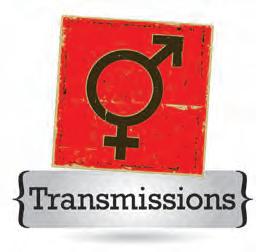
With that in mind, I want to go over a few actions I think we best focus on in these times, both to help us weather the storm, but also to aid us in coming out better on the other side.
1. Protect your neck
You have to keep yourself safe and well, and that covers both mental and physical wellness.
You may wish to consider learning and preparing for self-defense, but also remember that the best defense may be getting the hell out. As trans people, sometimes fighting back directly can lead to more trouble.
Likewise, it is easy to live in fear during fearful times, but that is not healthy for you. Find times for joy, for hope, and for beauty, no matter how small.
Related to the above: focusing on your preparations can help keep you from catastrophizing. This has helped me. Which leads us to …
3. Chop wood, carry water
As I said above, don’t let them terrorize you. It is going to be really easy to panic. Keep yourself mindful and focus on the mundane when you can. Being grounded is key here. Keep up on your chores, do whatever jobs you do, and try to keep to an active, healthy schedule, and keep focused on the small things. This will help keep you in the moment.
4. Build your network
Have contact information with trusted trans friends and allies that you can reach out to. Same with family, if they support you. Make sure that contact information is deeper than a link to their social media profile, too: trade emails, phone numbers, and addresses. Keep in contact.
In the meantime, political leaders need to be informed by their constituents about the impacts these cuts are having once they go into effect. The LGBTQ community can do this by working with nonprofits affected by these cuts, and working to rally supporters. The more people who make their voices heard, the more candidates for next year’s midterms will need to pay attention. Trump has overreached on this tax and spending bill, and, as Randall said, there’s nothing beautiful about it. t
In a worst-case scenario, finding supportive voices may get challenging for a while, so line up your friends right now.
Remember, too, that as much as you may need their support, they will need yours. Support when you can, ask for support when you can’t. We’re all in this together.
5. Make alliances
There are people in other communities who are struggling. We can build allies with pro-abortion causes, death with dignity activists, disability activists, sex-workers’ rights, unhoused rights, anti-racist groups, and so on. We have mutual causes and needs, and we are larger as one. Immigration and Customs Enforcement raids affect us, too. We can help, just as others may help us.
Conversely, watch for people who seek to sow division. There are those who know that a divided community is a weak community and will do all they can to keep us there. Let’s not let them. Related to this …
6. Trust, but verify
Much news and information are corrupted and propaganda is king, especially in the age of Trump. Objective reality is going to be hard to sort through, and lies will run like water. Many will tell lies about us, but many other lies will be aimed at harming you. Be wary of all sources and seek out truth.
7. Be non-compliant
In many cases, people will claim authority they do not have. Ignore them when you can. Speak back. You know who you are, and they do not.
Likewise, be ready to protest. We may need to go beyond marches and slogans, and it might get dangerous. It may, however, be far more dangerous if we don’t make our voices heard and our actions seen.
8. Don’t forget who you are
Remember to stay true to yourself: remember your values, your goals, and your beliefs. Don’t let them take who you are away. Resisting also means being the shining, beautiful soul that you are. Your existence matters, perhaps more so now than it ever has. We need your voice as much as anyone’s, and your existence is vital. We can only resist if we have something to fight for, and being yourself is worth the battle. Even if you need to survive out of spite, please survive. t
by Matthew S. Bajko
As the gay president of the Oakland Board of Port Commissioners prepares to gavel in his last meeting, and vote for a new name of its airport, a queer organizer is set to become the powerful oversight body’s first Asian American woman to serve on it. Avila Wong, who is Chinese American, expects to take part in her first port commission meeting later this summer.
A native of Redmond, Washington whose parents and grandparents all immigrated to the U.S., Wong moved to Oakland in 2012 after being hired by the Asian Pacific Environmental Network, where she is its basebuilding director. In 2010, Wong had served as an Eva Lowe Fellow at Chinese Progressive Association in San Francisco focused on organizing in the local Chinese immigrant community.
Wong, 36, will serve out the remainder of former port commissioner Yui Hay Lee’s term through July 10, 2026. Her tenure is to begin Friday, July 11.
“I feel very honored to be asked,” Wong told the Bay Area Reporter during a phone interview July 7.
She had fielded a call in the spring from the office of Oakland Mayor Barbara Lee to see if she would be interested in serving on the high-profile governing body. Wanting to ensure port discussions focused on the environmental issues and impacts of its maritime and aviation activities, Wong said yes.
She also wanted to bring her community organizing skills to the table and ensure immigrant and workingclass residents of West Oakland who live near the port’s facilities have access to jobs at it and are benefitting from its future development plans. Wong told the B.A.R. she was surprised to learn no Asian female had previously been named to the port commission and checked its online roster of members after being told she would be the first.

A spokesperson for Chiu has yet to respond to the B.A.R.’s request for comment about what impact the new name for Oakland’s airport would have on its lawsuit moving forward.
Colbruno told the B.A.R. this week the votes are there among the current six port commissioners to approve the new airport name. It will still use the OAK code on tickets and other materials.
“This is what we actually wanted,” said Colbruno, adding, “it really is to allow for people who are flying to the Bay Area and who don’t know the region to know that if you are going to Contra Costa County or to Berkeley that the Oakland airport is closer.”

Colbruno expects the new name will bring an end to San Francisco’s lawsuit. He reiterated the contention that Oakland port officials have made for months that the old Oakland International Airport name is confusing to people unfamiliar with the Bay Area and results in those visitors whose itineraries are based in the East Bay ending up booking flights in and out of SFO.
“It is kind of funny to me to be in 2025 and still think of all these firsts,” said Wong, adding she didn’t want the focus of her appointment to be on “identity politics” and more about the work she has done with APEN and other agencies she has been involved with over the years. “But I also am so excited, as the first Chinese queer woman who is a slightly nonbinary person, to be on the port commission in this kind of governing capacity and to show that anything is possible. We do need diversity of people and their lived experiences and identities to take on these kind of leadership roles.”
Meanwhile, Commissioner Michael Colbruno will take part in his last port board meeting Thursday, after which his third four-year term will officially come to an end. On the agenda for the July 10 meeting is renaming the city’s airport as Oakland San Francisco Bay Airport.
The port commission is expected to approve the name change, and in doing so, likely bring to an end a legal dispute with the city of San Francisco. Last year, City Attorney David Chiu sued Oakland port officials in federal court after they voted for naming their airport the San Francisco Bay Oakland International Airport.
He won a preliminary injunction in November blocking the Oakland airport from using the new name for likely infringing on the San Francisco International Airport’s trademark. In addition to causing howls of protest from across the bay, some Oaklanders also lambasted the port commissioners for downgrading the placement of The Town’s own name, as Oakland is affectionately nicknamed.
“As an environmentalist, that is important to me because it results in a lot of extra miles if somebody flies into San Francisco and drives to Livermore. It doesn’t make sense,” said Colbruno.
Taking Colbruno’s seat on the commission will be Derrick Muhammad, a member of the International Longshore and Warehouse Union, which has long wanted to have a representative on it. Lee also reappointed Port Commissioner Barbara Leslie to another term; Leslie and Muhammad will both serve through July 10, 2029.
Although he doesn’t personally know Wong, Colbruno told the B.A.R. he is pleased to see she will maintain an environmental perspective on the seven-member commission and out representation. He also noted how when he first joined it 12 years ago there were not only few out people at the port but also few women in leadership positions at it.
“We’re going to be a majority 5-2 female commission now. Diversity has been a great success over the last 12 years at this port,” said Colbruno. “I am very proud of it. We don’t just talk the talk; we did the work.”
During his tenure on the East Bay maritime body, Colbruno helped to bring together out port commissioners and officials at the 11 publicly-owned ports scattered throughout California, such as Oakland Port Commissioner Jahmese Myres, a queer Black woman who was appointed last year. He plans to once again take part in its annual Pride event, set to be held this year in September to coincide with Oakland’s parade and celebration.
“I went on as the queer commis-
sioner and am going off as the envi ronmental one. It’s interesting how that worked,” he said.
This winter Colbruno also had a key role in selecting ney as the port’s executive director, the first woman to serve in the position. In February, the port board approved a three-year contract for McKenney, first hired on to the port staff as an en vironmental planner and also served as its assistant aviation director and interim executive director.
McKenney succeeded Danny Wan, a gay man who retired February 28 after five years as the port’s executive director. As the Political Notebook first reported in June, Wan is one of a trio of longtime gay Port of Oakland officials to depart this year. Longtime port spokesperson Robert Bernardo retired in late April 22.

Colbruno, who had previously served on the city’s planning commission, will continue to focus on his outside work as a founding partner in the government affairs firm the Milo Group. He quipped that over the years, people assumed being a port commissioner was his full-time job when, in fact, it is a volunteer role with no compensation.
“It is nice to go out as president. I appreciate the support of my fellow commissioners to allow that to be the case,” he said, adding that serving in the role “has been absolutely the hon or of a lifetime.”
His one regret, said Colbruno, was not reaching an agreement to keep the Oakland A’s baseball team in Oakland with a new stadium at the port’s Howard Terminal site. Those negotiations were futile, as team owner John Fisher announced he was taking the team to Las Vegas. (The team is currently playing in West Sacramento under the name the Athletics and construction has yet to begin on its stadium in Sin City.)
“I have one, and only one, regret of my 12 years on the port, and that is we couldn’t keep the Oakland A’s in Oakland, whether on port property or city property,” said Colbruno. “It is a generational loss for children and grandchildren in the future.”



Not only because Oakland and other East Bay families no longer will have those shared memories of going to a major league baseball game in their backyard, Colbruno also rued how the A’s were the last of the three major professional sports teams to leave the city.
“It is a value and an asset, not to mention putting Oakland on the map. They were our last major league team,” he said. “It is my greatest regret, my only regret, that we couldn’t help deliver that.”
As for the future of the Howard Terminal site, Colbruno said it is now set for maritime usage, which will make the port’s unions and industry leaders happy.
DEADLINES: Friday 12 noon for space reservations Monday 12 noon for copy & images
PLACE: Call 415 829 8937 or email us at advertising@ebar.com *Non-display Obituaries of 200-words or less are FREE to place. Please email obituary@ebar.com for more information.

The attorney general urged fellow Californians to look at the report and the data so as to try to protect the state’s diverse communities, saying that “everyone has a part to play as we continue to fight intolerance in California, and I urge leaders up and down the state to review the data and resources available and recommit to standing united against hate. The California Department of Justice remains steadfast in our commitment to continue working with law enforcement, elected leaders, and community organizations across California to keep our communities safe.”
The groups most likely to be targeted in reported hate crime events were Black Americans, Jews, and gay men, in that order, according to the report. Reported hate crime events involving a sexual orientation bias increased 12.3% from 405 in 2023 to 455 in 2024. Of those, 231 in 2023 and 251 in 2024 were against gay males specifically.
Anti-lesbian reported hate crime events rose from 17 in 2023 to 23 in 2024. Anti-bisexual reported hate crime events rose from six in 2023 to seven in 2024. There were no anti-heterosexual reported hate crime events reported in 2023, but two reported in 2024.
Jorge Reyes Salinas, a gay man who is communications director for the statewide LGBTQ affinity group Equality California, stated to the B.A.R. that,
“This report confirms what so many of us already know: hate is rising in California – and our communities are paying the price. This isn’t happening in a vacuum. It’s the direct result of dangerous political rhetoric, extremist violence, and policies designed to scapegoat peo-
centers
From page 1
However, StarVista recently announced that it will be merging with another, more stable, nonprofit partner amid its own financial woes.
“Despite our best efforts, we have been unable to achieve the financial and operational stability needed to be the reliable partner our staff, programs, and community rely on. This decision was not made lightly, and it reflects our deep commitment to ensuring continuity of care and minimizing disruption to those we serve,” stated StarVista acting CEO Shareen Leland. “The agency we are looking to merge with values the important, community-based work we do and believes that many of our programs will enhance their behavioral health services, ensuring our community continues to receive the care it needs and deserves.
“The merger process will take time, and the final outcome remains uncertain,” Leland continued. “In the interim, we are working closely with San Mateo County and our other key partners to ensure services continue with as little disruption as possible.”
Asked about this, Sapp stated, “The San Mateo County Pride Center will be impacted by this merger.”
“I know there has been a lot of valid fear and worry about the ‘end of StarVista,’ the uncertainty for its programs, and the potential loss of services for the thousands of clients served across the county,” Sapp stated. “Within the organization’s legacy are the great leaders, clinicians, and staff members that I have had the great privilege of working with, who are also worried about their programs, clients, and now, individual futures.”
Sapp added that the LGBTQ community is important to StarVista, and is itself resilient.
“It’s incredibly important to note that the current executive leadership of StarVista understands the value and importance of the Pride Center’s services,” Sapp continued. “This has also always been true of our primary funder, Behavioral Health and Recovery Services, the County of San Mateo, and the collective Board of Supervisors. So, while shortterm cuts to some of our programs and services will be likely, I don’t foresee a possibility where the Pride Center’s doors will close. I do foresee a future
ple for who they are. We need stronger protections, better enforcement, and elected officials at every level of government to call out hate in all its forms – regardless of their politics.”
Reported hate crime events involving a gender bias increased 2.4% from 82 in 2023 to 84 in 2024. Specifically, anti-trans bias events increased 12.3% from 65 in 2023 to 73 in 2024, while anti-gendernonconforming bias events fell, from 11 in 2023 to 7 in 2024.
Reported hate crime events based on anti-Black, Asian, white, Muslim and Roman Catholic identities also fell. However, reported hate crimes against Jewish Californians rose 7.3% from 289 in 2023 to 310 in 2024.
SF leaders address safety concerns
San Francisco city leaders recently held a news conference about antisemitism after vandalism at a gay, Jewish-owned cafe in the Mission district, and after hate crimes were charged against two people after an alleged antisemitic assault in the Marina neighborhood, according to the San Francisco District Attorney’s office.
On June 24, the day before the report was released, the Board of Supervisors unanimously passed a resolution condemning antisemitism and all forms of race- and religion-based violence.
It was introduced by gay Board of Supervisors President Rafael Mandelman, who is Jewish and represents District 8 and its LGBTQ Castro neighborhood.
“This resolution is a clear statement that San Francisco stands with its Jewish residents and against antisemitism in all its forms,” stated Mandelman. “These acts of hate – whether they are violent, verbal, or symbolic – are part of a broader pattern of rising bias-based violence that we must confront with unity and moral clarity.”
when we will need our community to help us rebuild. But I know that, historically, our community knows how to answer that call.”
The B.A.R. asked Sapp on June 25 if clients had been informed about the StarVista situation. He stated, “There are multiple moving parts and factors, and many of the details about our programs and services are still being determined. We are keeping our clients and community informed as much as needed, which includes those directly connected to our services. However, we won’t make a final public announcement about all effective changes until they are known.”
Asked last month how people connected to services were being informed, Sapp referred the B.A.R. to center manager Alex Lyman-Golding, who stated June 26 that, “I wanted to let you know that we are not yet ready to comment on the rest of your question at this time, since we are still in the process of receiving new information. Currently, we are strategizing on how best to meet the needs of our clients and community as the details about the StarVista merger, and the impact of the losses to our center become more clear. Our ideal goal is to ensure that clients have pathways to affirming support, and we will keep our community informed when details are finalized.”
On June 27, the center sent out a statement of reassurance to the Peninsula’s LGBTQ community via email.
“As you may be aware, after facing significant financial challenges StarVista (parent agency of the Pride Center) is pursuing a merger with a larger, more financially stable nonprofit organization,” it states, in-part. “We want to assure you that the Pride Center will not be closing. We remain committed to supporting you, our community, and are dedicated to prioritizing your needs as best we can.”
The statement continues that, “Sadly, however, the Pride Center will be operating in a reduced capacity. As such, we will unfortunately need to shift and limit some of our current programs and services. Currently, we are strategizing on how best to meet the needs of our clients and community as the details about the merger and the impact of the losses to our center become more clear.”
San Mateo County District 5 Supervisor David Canepa told the B.A.R. in a July 2 phone interview that, “We have no intention of shutting down the [LG-
Jonathan Mintzer, senior director of government affairs at the Jewish Community Relations Council, thanked the supervisors, stating, “JCRC Bay Area applauds this unequivocal stand rejecting antisemitism and seeking to address it in government spaces. Let this be a call to stand together across divides. Every San Franciscan deserves safety, and every Jew deserves the opportunity to live their authentic Jewish lives without threat of violence.”
Gay District 6 Supervisor Matt Dorsey introduced legislation this week to create a hate crime reward fund, which would offer informants $100,000 upon conviction. He cited the Mission and Marina incidents while doing so, as well as an incident in Redwood City when teens allegedly threw fireworks into a crowd at an LGBTQ Pride celebration, which the B.A.R. reported on at the time.
“Hate crime perpetrators never aim to victimize an individual or business solely, but to instill fear in entire communities,” Dorsey stated. “A generously funded Hate Crime Reward will help flip the script on bigots – by instilling fear into hate criminals that informants will be well paid to bring them to justice for their hateful vandalism and violence. In times like these especially, a city as diverse as San Francisco must take hate crimes extremely seriously. The Hate Crime Reward Fund I’m proposing is about sending a strong message to would-be hate criminals that San Francisco is doing exactly that.”
Asked about Bonta’s report, Dorsey stated to the B.A.R. that the numbers are “troubling, but I’m honestly more worried about this year.”
“In the first Trump administration, we saw how COVID-related anti-Asian rhetoric drove hate incidents and hate crimes targeting our AAPI communities,” Dorsey stated. “In the second Trump
BTQ] center. We put a lot of resources and money into it. Continuing to see that it delivers services is important.”
He continued that while he is not personally privy to these conversations, he knows “conversations are taking place among nonprofit providers” and that “it’s too early to begin” discussions about what happens if the proposed merger fails.
“We want to make sure the social safety net services continue to be provided,” Canepa said. “We’ll get there. I don’t know if we’re there yet. … There may be an announcement in the next several weeks.”
Caminar, a behavioral health organization that supports 41,000 youth and adults across seven counties, provides similar services to those provided by StarVista. Asked if Caminar would consider a merger, a spokesperson stated to the B.A.R. in late June that, “Caminar is always exploring ways to strengthen our impact and better serve our communities, but at this time we have no updates to share.”
For more information, go to sanmateopride.org
The newest LGBTQ center in the area opened just this past May. That would be the Marin LGBTQ+ Center, which is located at the Marin Multi-Cultural Center at 709 Fifth Avenue in San Rafael. Marin County had been without a center after the Spahr Center’s abrupt closure in February 2024. As the Bay Area Reporter noted in May, the center has no executive director and is all-volunteer, with a special focus on providing space for trans and queer-identified youth through its QNest program.
That focus is because trans youth are bearing the brunt of the transphobic and homophobic backlash to LGBTQ civil rights that has grown in recent years and accelerated with the beginning of President Donald Trump’s second term in January.
The center’s website states that QNest is, “a new program where youth can come together to work on creative projects, develop new skills, and find support in a welcoming environment.”
The program is open-ended. Gatherings might be focused on advocating for trans rights, while other sessions might be dancing, co-founders Mila Eliaschev, who is queer, and Lara Valencia, a les-
administration, the favored targets so far seem to be our immigrant and trans communities. We’ve also seen how global events like the October 7 Hamas attack on Israel drove incidents targeting Jewish and Muslim communities alike.”
Dorsey added he hopes the reward fund, if approved, will “send a message to would-be hate criminals that we take bigotry-motivated vandalism and violence seriously, and that we’ll pay handsomely to bring perpetrators of these crimes to justice.”
At a June 26 news conference to discuss security ahead of LGBTQ Pride festivities in the city, San Francisco District Attorney Brooke Jenkins said that she was sent the hate crimes report that very morning.
“I am concerned that gay men fall on the top of that list, along with Black Americans and Jewish Americans,” Jenkins said. “It shows the work we still have ahead of us to show, as San Franciscans, we embrace each other more positively.”
Jenkins continued that her hate crimes designated prosecutor, Assistant District Attorney Jamal Anderson, continues to work with Mandelman at having events in the Castro neighborhood to encourage people to report hate crimes and any incidents that they believe may be unlawful. The most recent of these forums, the B.A.R. covered in September 2024.
Jenkins’ office did not charge a hate crime after the pink triangle, an LGBTQ symbol placed on Twin Peaks for Pride Month, was vandalized in mid-June. A police interview revealed the suspect did not know what the symbol represented, she said, and so her office did not feel they could get a conviction beyond a reasonable doubt, as the B.A.R. reported.
“I do continue to encourage people to report to the police,” she said.
Deputy Police Chief Derrick Lew
added that after the recent antisemitic incidents, the department is in touch with places of worship, and communicates with the broader national intelligence community about both national and international events on a regular basis.
Gay state Senator Scott Wiener (DSan Francisco) cited 2023 federal statistics showing that Jews, LGBTQs, and Muslims face the highest number of hate crimes per capita. For Jews there were 291 reported hate crimes per 1 million Jewish Americans in 2023; for LGBTQs it was 111 reported hate crimes per 1 million LGBTQ Americans the same year; for Muslim Americans it was 79 reported hate crimes per 1 million Muslim Americans. (2023 is the most recent year for which federal statistics are available.)
“This report, consistent with FBI national hate crime data, shows that some of our smallest communities –including Jews, LGBTQ people, and Black people – are the most severely targeted by hate crimes,” Wiener, the subject of death threats due to both being Jewish and gay, stated June 27. “The atmosphere of hate and bigotry in this country is escalating. We need to put a stop to it and have a zero tolerance policy for hate crimes of any kind.” t
The State of California offers help for victims or witnesses to a hate crime or hate incident. This resource is supported in whole or in part by funding provided by the State of California, administered by the California State Library in partnership with the California Department of Social Services and the California Commission on Asian and Pacific Islander American Affairs as part of the Stop the Hate program. To report a hate incident or hate crime and get support, go to cavshate.org.

bian, previously told the B.A.R.
The Reverend Jane Adams Spahr, a lesbian and retired Presbyterian minister for whom the former center was named, told the B.A.R. in a recent phone interview that everything is working out better than expected at the new organization.
“It’s phenomenal. It’s exploded,” Spahr said. “People are turning out and resisting, which has been so important across the country. In challenging this incredible repression, people are longing to be together, and longing to stand up for one another.”
Spahr said that 15 people have already agreed to volunteer for the center in having a presence at the Marin County Fair on July 5. The center will also be participating in the San Francisco Pride parade on June 29, which Spahr said will be “very exciting.”
For more information, go to marinlgbtqcenter.org
San Jose
San Jose, the largest city in the Bay Area, has long been served by the Billy DeFrank LGBTQ+ Community Center at 938 The Alameda. The center opened in 1981, according to its website.
Gabrielle Antolovich, the president of the center’s board, told the B.A.R. that like the North Bay center, it is also 100% volunteer-led. That “ended up being a good thing during COVID because we didn’t have complications with employees whose jobs couldn’t be done at home.”
A big part of the center’s work is to try to “break the isolation and loneliness,” which is why it hosts discussion groups and a rainbow bingo every Wednesday.
“You have to concentrate – it helps people forget their anxieties,” Antolovich said of playing bingo.
The center also provides diversity trainings and workshops for those interested. It doesn’t have any government contracts for services.
“If we ran a nonprofit purely on federal funding, we’d be dead in the water,” she said. “During COVID we did a lot of strategic planning and felt there was instability going on. We didn’t want to be dependent on government funding. … We’re so glad we made that decision based on what we saw.”
The center is “looking for different ways to raise funds” but is not in “panic mode,” Antolovich added, saying they are thinking of hosting a rummage sale or having potlucks to bring in donations.
“Those who go will give you $20 … and it feels good to me because anyone can show up who wants to and, in the end, it evens out rather than having a $10 entrance fee,” Antolovich said.
Antolovich didn’t answer a follow-up emailed question as to how many clients the center serves annually, though its website says “each week over a thousand people visit” it. The center had a budget of $223,036 in Fiscal Year 2023-24, according to its latest IRS Form 990. It had a surplus of $59,028.
For more information, go to defrankcenter.org t
“Coming out of COVID, it still felt unstable in the world,” Antolovich, who is nonbinary and genderqueer, said in a phone interview. “It’s not like everyone said, ‘Oh we’re back to normal.’ No. It changed people.”

by Myron Caringal
Each taking personal experience and translating it into something layered and alive, dancer-choreographers Mia J. Chong and Molly Rose-Williams are presenting new works at ODC this summer. Both artists identify as queer, and while that informs their work, it’s not the headline.
Their pieces, showcasing at ODC/Dance’s Summer Sampler (July 17–20) and ODC Theater’s State of Play Festival (July 31–August 3), respectively, are first and foremost about craft. They play with rhythm, character, and structure. They manipulate time, tone, and attention. They’re interested in the body: how it remembers, how it feels, how it reveals.
For Chong, a San Francisco native and longtime member of the ODC family, this summer marks her first commissioned work as a guest choreographer with the main company. The piece, “Theories of Time,” takes inspiration from research into time perception: why it seems to slow in moments of heightened emotion, or speeds up when we’re not paying attention.
“It felt like a relevant theme for me to explore,” she said. “I’m reaching a point in my life where I’ve witnessed the full life cycle. I’m surrounded by a lot of the birth of new life, but also some loss as well.”
She’s been a part of ODC since she was five years old, first as a student, then as a member of the teen Dance Jam ensemble, and later as a full company dancer. After six seasons performing with ODC/Dance, and receiving a Princess Grace Award along the way, Chong became the company’s staging director. Now, she’s stepping into the role of choreographer for ODC/Dance’s Summer Sampler.
Chong describes her style as abstract but emotionally grounded, shaped by her years at ODC under co-artistic directors KT Nelson and Brenda Way.
“I tried to take ideas about how we experience time and translate that into physicality through certain gestures, structure, and speed,” she said. “There are slow-motion moments, really fast, dense movement material, and some fast-forward and retrograde ideas that I tried play with in this piece.”


Molly Rose-Williams will perform her solo work, “Crush,” at ODC’s 13th annual summer dance festival, State of Play. Her process has been rooted in emotional experience. She first began developing the piece about five years ago, just after a breakup, while taking a solo performance class.
“The only thing I could do was make pieces about heartbreak,” she said. “Every week, I tried to make something different, but I couldn’t. That was all that was coming out of me.”
Over the following year, she returned to the material periodically, layering in new experiences, including a new relationship, until “Crush” became a full-length, 60-minute solo show. It’s part dance, part physical theater, and part comedy, tracking the arc of falling in and out of love while navigating all the confusion in between.
The piece is character-driven. Rose-Williams embodies multiple personas throughout the
show. Her approach to solo work also gives her freedom.
“I don’t have to explain things to anyone,” she said. “That freedom, autonomy, the lack of constraint from explanation or logical sense is something that I love in a solo form.”
“Crush” is inherently queer, though that wasn’t something Rose-Williams consciously emphasized at first, until her straight sister pointed out all the gender play she was already doing.
“I realized that was the case,” she said. “And I was like, ‘Oh, I could get even more intentional about that.’ That was when the gender of those characters came to life for me consciously. Previously, I wasn’t thinking about their genders.”
For both artists, queerness isn’t the sole subject of their work, but it informs how they create and how they show up. They’re part of a generation of Bay Area artists who are moving past identity as category and toward a more expansive view

of what queer performance can be outside of a political space: playful, rigorous, and radically inventive.t
Read the full article on www.ebar.com.
ODC/Dance’s ‘Summer Sampler,’ $30-$100, Thursday-Saturday, July 17-20, 3153 17th St. July 19 is LGBTQIA+ Night, with an afterparty hosted by Black Benatar across the street from the theater at Mission Bowling. www.odc.dance/summersampler
ODC’s ‘State of Play,’ $0-$300, ThursdaySunday, July 31–August 3, multiple locations www.odc.dance/stateofplay www.miajchong.com www.mollyrosewilliams.com
Rby Joshua Polanski
ebecca Lenkiewicz’s directorial debut “Hot Milk” (IFC Films) is a fitting release for a long hot summer. Adapted from Deborah Levy’s acclaimed novel of the same name, Lenkiewicz’s debut puts three women –Emma Mackey, Vicky Krieps, and Fiona Shaw– at the center of a life-changing European summer of parasitical relationships, intense emotions and sensual expression, trauma sharing, and a search for independence. It also makes for a pretty good queer addition to the “summer romance” subgenre with lovers languishing with longing in the picturesque Greek beach town that the filmmakers confidently transform into idyllic Spain.
Mackey plays Sofia, a struggling anthropologist in her late 20s who spends most of her time as her mother’s full-time caregiver. Her mother Rose (Shaw)’s paralysis means she can’t walk and uses a wheelchair… other than the odd time or two a year when she can walk. Sofia is fully and completely responsible for her mom and has been since she was first paralyzed when Sofia was only four.
Ingrid and Sofia have relations with both each other and with men. “Hot Milk” imagines a Europe where queerness has been so normalized that even in a small, remote community it demands no special commentary or navigation; it’s just a fact of their lives. All of the men are unimportant with the lone exception of the unorthodox Dr. Gomez (Vincent Perez). The two most important people behind the screen are also women: writer and director Lenkiewicz, who also wrote the brilliant “Disobedience,” and the original writer Levy.t
Read the full review on ebar.com.
www.hotmilkmovie.com
by Jim Gladstone
Awoke and wacky take on Shakespeare’s star-crossed young lovers, “& Juliet” has the delirious feel of a dorm room party game played by English majors on gummies.
Featuring a stack of pop songs by Swedish hitmaker Max Martin woven together with gags by “Schitt’s Creek” scripter David West Read, this jukebox musical, playing at the Orpheum Theatre through July 27, provides goofy summer fun without insulting one’s intelligence.
The proceedings’ loose conceit has the Bard (Corey Mach) bickering with his wife Anne Hathaway (Teal Wicks) as they collaboratively rewrite “Romeo and Juliet” to right historical gender inequity.
Words and meanings
Rather than doubling down on her boo’s suicide, the new and improved Juliet (Rachel Simone Webb, a monster vocal talent) saunters on to more empowered pastures.
So does Lady Shakes, who takes ownership of her authorship, salvages her marriage, and delivers a powerful, pellucid rendition of “That’s The Way It Is” that stands up to the most famous version of the song by Celine Dion.

Wicks (a one-time Broadway Elphaba) gives a performance that goes far beyond the broad strokes and bright colors that would be sufficient to float a lighthearted spectacle like this. She’s a true singing actress, nuancing every syllable of every lyric to fill them with emotional and psychological subtext that, frankly, don’t exist in the original composition.
Paul-Jordan Jansen who plays Lance, a French patriarch, brings a similar gravitas to the overall glossiness, declaiming Katy Perry’s “Teenage Dream” like a holy writ.
Max Martin may be Captain Hook
FABULOUS F**K BOY
Model looks 6’ 150# 27yrs, 8” uncut beautiful tight yummy ass. Smoky sexuality erotic male nympho. Hndsm hedonist. Str8, gay, married men at yr apt, hotel, mansion! Greek god Nick 415-818-3126. Leather fetish fantasy roleplay kink dom sub group scenes mild to wild. Pretty boy with a dirty mind, romantic & unforgettable! $400/hr, $2000 overnight neg.


when it comes to crafting sticky sonic environments. But his lyrics, mostly co-written with what the Playbill refers to as “Friends,” are hardly Shakespeare.
From “That’s the Way It Is” and the similarly unspecific “I Want It That Way” (originally by the Backstreet Boys), to the one-dimensional sentiments of “Stronger” (Britney Spears) and “Whataya Want from Me” (Adam Lambert) the words are purposefully imprecise; blank screens awaiting pop fans’ impassioned projections. The sharp theatrical wit of Cole Porter is nowhere to be found
‘Theater
by Brian Bromberger
I f you were asked to name of one of the most successful American theatrical producers, whose productions and tours have grossed over $4.6 billion, reached over 43 million patrons, and is the only producer to have mounted two Pulitzer-Prize winning musicals, that his shows have garnered 22 Tony Awards, including four best-musical awards, would you know who it is?
Would mention of “Rent” and “Hamilton,” and that he’s gay, help you guess? If you’re drawing a blank, then you need to read the new candid, fast-moving, and engaging autobiography, “Theater Kid: A Broadway Memoir,” by Jeffrey Seller.
It’s a standard coming-of-age/ Horatio Alger rags-to-riches story with Seller saying he wrote it “as an exercise in squashing all my shame at being an adopted (as an infant), gay, Jewish poor kid, and always feeling like an outsider.”
Theater kid used to be an insult, where gays, nerds and other castaway students found refuge with each other and annoyed everyone else. Today, with the popularity of the “Glee” TV series, it’s code word for high octane enthusiasm and the desire to become a star, a singer, an actor. For Seller, it gave him a sense of belonging, that he could fit in, which he never felt as an adopted kid in his quarrelling dysfunctional family. It was both a way out and a way up career for him.
Bookish
The first third of the book, and the least interesting, is Seller’s growing up in suburban Detroit as a shy, bookish child, in a pejoratively named area, Cardboard Village, because of their poorly built houses. The central character in his early life was his father. When he was nine, his father was brain damaged in a motorcycle accident, which left him emotionally unstable.
Meanwhile, his mother worked several low-paying jobs to support the family, as his father missed car payments, as well as being a philanderer with other women.
“I glowed on the outside, but on the inside, faint feelings of isolation and loss that I could neither define nor voice lay dormant, waiting to express themselves in the fu-
dead to a tune made famous by Jon Bon Jovi. And it’s all bon! All jovial!
Even when attempts to align story and song get as twisted as the show’s titular ampersand, there’s cornball pleasure to the pained effort: Britney Spears’ hit, “Not a Girl, Not Yet a Woman” is repurposed as an anthem for a male-born non-binary teenager who’s embracing his feminine side. This is strenuous silliness.
in these songs; but with lyrics that can point anywhere, anything goes.
The playfulness is the thing
So, we watch the befuddled folk of Verona curlicue through new scenarios with what feels like the “Yes! And…” spirit of improv. It’s actually exquisitely timed comedy, albeit often of the Dad joke school, directed with a pinpoint touch by Luke Sheppard.
West Read’s script has the action jumping to Paris, Juliet’s nurse rekindling an old flame, Shakespeare throwing Elizabethan conniptions; and a dimwitted twink rising from the
The production’s technical aspects are superb across the board. A lush jewel-tone color palette is carried across Soutra Gilmour’s scenic design, Howard Hudson’s lighting and Paloma Young’s truly funny finery which mixes Elizabethan ruffled collars, tunics, and corsets with blue jeans, capri pants, sneaks, and sweatsuits.
This critic doesn’t recall ever specifically noting a show’s make-up before, but Simone Webb’s already mesmerizing performance of “Since You’ve Been Gone” was made all the more so by J. Jared Janas’ gleaming brown lip treatment. Even as the words she sang evaporated into nothingness, I couldn’t keep my eyes off her face. t
‘& Juliet’ through July 27. $58-$189. Orpheum Theatre, 1192 Market www.broadwaysf.com


ture,” Seller writes. To say it was an ambivalent relationship is mild, as at one point he writes, “I hate my fat, smelly, shit-infested, process-serving, brain-damaged father.”
His unhappy life is saved when he watches the 1980 Tony Awards awestruck at Patti LuPone and Mandy Patinkin singing a song from “Evita.”
He saves money to buy the album and memorizes the whole score and lyrics. That year he’s devastated by the death of choreographer Gower Champion hours before the opening of his new musical “42nd Street.”
He joins a youth theater troupe in high school and also works as a drama counselor at a Michigan summer camp in his freshman year at University of Michigan. He didn’t realize at the time that this was all training for the producer he would become years later.
Seller was also discovering his sexuality, coming out amid the AIDS epidemic, but still having an active sex life, such as frolicking in a gym sauna with other guys. He spares no details about what kind of sex he likes, but has no serious romantic relationships with other men.
Hits parade
He moved to Manhattan in 1986, beginning his theatrical career as a booking agent, which he hated, but in a bold move, used this position to launch his own producing agency with his business partner Kevin McCollum. His professional turning point comes when he attends a “rock monologue” called “Boho Days” by
the 30-year-old neurotic composer Jonathan Larsen, who would write and compose the musical, “Rent.”
But right after the final dress rehearsal, Larsen dies suddenly of an undiagnosed aortic dissection just before the 1996 opening.
The second fateful evening of his life is when he sees a new musicalin-progress called “In the Heights” about Dominican-American characters in Washington Heights in Upper Manhattan. He befriends the musical’s creator Lin-Manuel Miranda. They develop a professional partnership which will later lead to Seller’s producing Miranda’s masterpiece “Hamilton.” Seller will produce the hit musical comedy puppet show with human actors and its racy adultoriented themes, “Avenue Q.”
Seller tells many polished insightful anecdotes, though the book isn’t a love letter to the theater. Rather, his message is that theater is hard, demanding work with no guarantees, but persistence is mandatory if you’re going to discover your voice. Credit is due about being truthful about himself, that he’s insecure, petty, demanding, but always in pursuit of artistic excellence. He didn’t wait for any doors to open for him. He built his own theatrical empire and helped to transform Broadway into the powerhouse it is today.t
‘Theater Kid: A Broadway Memoir’ by Jeffrey Seller, Simon & Schuster, $29.99 www.simonandschuster.com
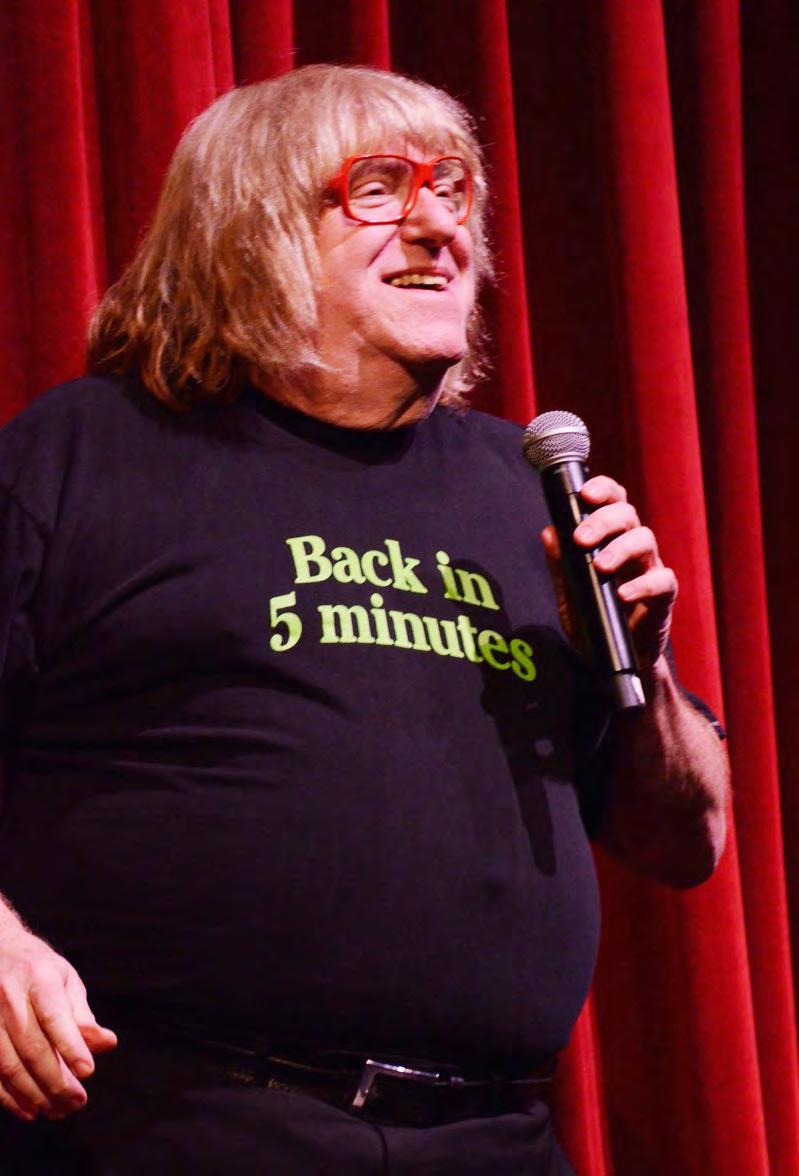
by Gregg Shapiro
When it comes to writing, prolific and hilarious gay scribe Bruce Vilanch has just about everybody else beat. His distinctive comedic style has earned him Emmy Awards for a couple of the multiple Oscar spectacles he penned. He also has long-standing
creative relationships with top notch artists, including Bette Midler, for whom he has written reams of comedic material.
In his second book, “It Seemed Like a Bad Idea at the Time” (Chicago Review Press), Vilanch shines a klieg light on some of his more infamous efforts, including TV fare such as “The
Star Wars Holiday Special,” “The Paul Lynde Halloween Special,” “The Brady Bunch Hour,” as well as the movies “Can’t Stop The Music” and “The Ice Pirates,” demonstrating his ability to have a sense of humor even in the worst situations.
Vilanch will be in San Francisco for two events; as part of the line-up of entertainers at the Richmond/Ermet Aid Foundation’s Help is on the Way XXXI at the Marines’ Memorial Theater July 20, 7:30pm, and at a book talk and signing at Oasis nightclub with D’Arcy Drollinger on July 22 at 7pm (details below).
Gregg Shapiro: Bruce, there’s a 25-year gap between your first book, “Bruce!: My Adventures in the Skin Trade and Other Essays” and your new book “It Seemed Like a Bad Idea at the Time.” Why was now the time to write a new book?
Bruce Vilanch: During COVID, I found myself on a lot of lockdown podcasts with hosts who were born after I wrote all these shows but encountered them on the Internet. They all wanted to know how these curiosities happened. Who said yes? And did they escape jail on appeal [laughs]? I thought this was a new way to do a sort-of memoir.
“It Seemed Like a Bad Idea at the Time” is full of vivid details. Were you a journal keeper, or was this all written from memory?
I do keep a journal, but a lot of the old ones were washed away in a flood. Seriously. So, some of the stuff is just from memory and my haunted dreams.
Would it be fair to say that the book is also a Hollywood/show business history lesson? After all, there are footnotes.
I was afraid a younger audience wouldn’t get many of the references to things that happened forty years ago,
by Gregg Shapiro
As you can tell from the title, “Big Easy Queens” (Advocate Originals), now streaming on Hulu, is set in New Orleans, specifically in the French Quarter, known to be an exciting but dangerous place. “Big Easy Queens” drives home the point by opening with the murders of a trio of men.
The first man is gunned down by a woman wearing a machine-gun bustier (I kid you not). The second man has his drink poisoned in a bar, causing him to vomit his intestines. The third man is strangled with a feather boa, interwoven with barbed wire. All of this takes place while Minnie (live-singing drag legend Miss Bouveé), a nightclub diva and the “toughest broad” in gangland, performs the first of a handful of musical numbers.
In her dressing room following the show, Minnie is looked after by Giuseppe (Alexander Zenoz), her faithful assistant of 15 years. Even though she’s the one who put out the hit on the three men, all of whom were the henchmen of her arch nemesis Poodles (Jennifer McClain), she is still unnerved. It appears that she has been receiving threatening messages delivered with a bouquet of gardenias. Minnie and Giuseppe’s confidential moment is interrupted by a knock on the door. It’s none other than her former paramour Jackson (Matthew Darren). Presently married to Minnie’s sister, Mimi (Benjamin Shaevitz aka Suzie Toot), Jackson abandoned Minnie when she was with child. But they still maintain an intimate relationship. Jackson has come to borrow money for his failing construction company.
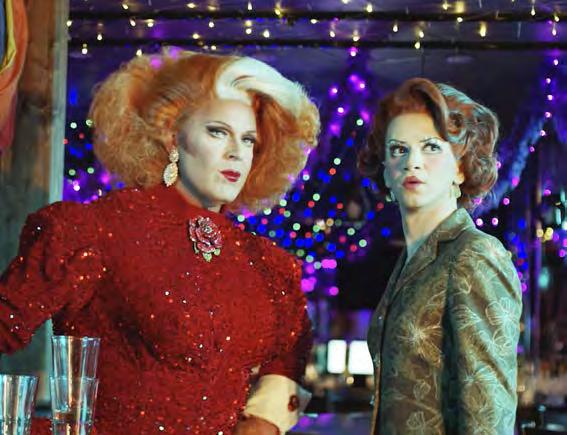
Meanwhile, Mimi, also desperate to help Jackson, meets with Poodles. In exchange for a sum of money, with strings attached, Mimi agrees to reconcile with Minnie, and go to work at her club so that she can spy on her for Poodles, opening the door for Poodles’ act of revenge. However, a series of events, including Jackson being killed by a hit-andrun driver right in front of Mimi, as well as ongoing attacks on Minnie’s life by a masked man, change the course of the action. Mimi also proves herself to be one of Minnie’s star employees. Suddenly, the estranged sisters are besties. Minnie even invites Mimi to move in with her. Before you can say lagniappe, there is a sequence of revelations. The unmasked attacker turns out to be Jackson, who isn’t dead after all. No one
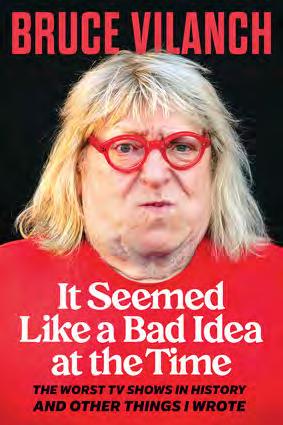
but then I read Mary Rodgers’ memoir, which she died before she finished and was completed by Jesse Green, who added footnotes which are as entertaining as the book. So why not give it a twirl? It is a history of a certain kind of show biz, of sorts.
You were the subject of the 1999 documentary, “Get Bruce!” and
Allan Carr, whom you write about in the “Can’t Stop The Music” and “Oscar! Oscar” chapters, was the subject of the 2017 film “The Fabulous Allan Carr.” Is there anyone else that you wrote about in the book that you think would make for a good documentary subject? Everybody is a good documentary subject. I think reality TV has revealed that dirty secret.t
Read the full interview on www.ebar.com.
Bruce Vilanch will perform at the Richmond/Ermet Aid Foundation’s Help is on the Way XXXI , with several singers, and cast members from the touring production of “& Juliet,” at the Marines’ Memorial Theater, 609 Sutter Street, July 20, 7:30pm, $45-$150 and up. www.reaf-sf.org
Vilanch’s book talk and signing at Oasis nightclub with D’Arcy Drollinger will be July 22 at 7pm, 298 11th Street. $30 includes a book. www.sfoasis.com

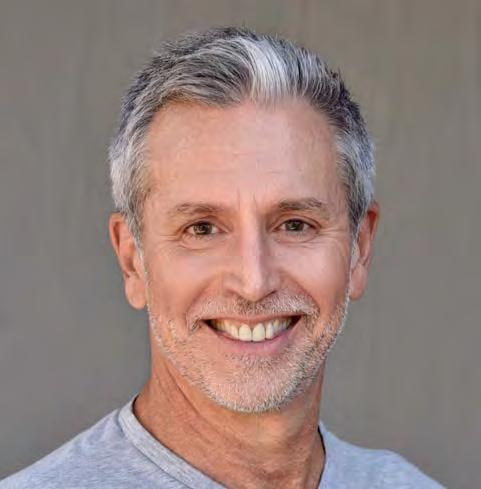



is the loyal friend they were thought to be. Not Earlene (Varla Jean Merman), who works at Minnie’s club. Not Poodles’ sidekick Amos (Jeffery Roberson aka Varla). Not even the devoted Giuseppe.
Movies don’t get much lower budget than “Big Easy Queens,” but that doesn’t mean it’s not entertaining. The musical numbers, most of which are performed by Miss Bouveé, are clever but forgettable. The costumes are eye-catching, the gore is over-the-top, and Robert Leleux’s script practically oozes with campy cinematic references (“Showgirls,” “Mommie Dearest,” and so on). Director Erynn Dalton makes the most of her hammy cast, and at 77 minutes, it’s not a complete waste of time; available on Hulu.com.
Rating: C+t

